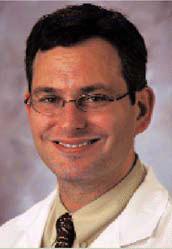According to Dartmouth Atlas (DA) researchers, too much of a good thing may be a bad thing-including doctor visits, medical tests, procedures and days spent in the hospital. For 35 years John Wennberg, MD, and his Dartmouth colleagues have generated a data tsunami indicating that distributional inequity- i.e., the numbers of specialists and hospitals in largely urban areas-drives patient care. Their goal is to vaporize the status quo by substituting evidence-based treatment options that physician/patient partners evaluate together, rather than the supply-driven misutilization of medical resources that predominates.
Explore This Issue
June 2008Dartmouth Atlas proponents argue that hospitals need to fill their beds and physicians their appointment books. That hurts rather than helps patients. In a 2007 DA report on utilization and equity, Dartmouth authors stated that Miami, Los Angeles, and Manhattan have overbuilt their acute care sectors, whereas Minneapolis, Salt Lake City, and Portland, OR have been frugal, using fewer hospital beds, less physician labor, and fewer expensive technologies such as intensive care unit (ICU) beds and medical imaging. Dr. Wennberg sees excessive utilization worsening, with care intensity increasing everywhere, and growth in medical specialist visits and ICU stays escalating rapidly in high-cost regions.
Distributional inequities, according to Dartmouth’s reasoning, lead to unwarranted variations in the practice of medicine and the use of medical resources. Such variation comes from three sources: underuse of effective care, such as not using beta blockers for heart attack; misuse, from the failure to accurately communicate the risks and benefits of alternative treatments; and overuse, from practices such as admitting patients with chronic conditions, then subjecting them to redundant tests and procedures rather than treating them less invasively as outpatients. Eliminating such unwarranted variations in care, by DA logic, should improve patient outcomes and lower costs.
In the fight against unwarranted variation, physicians and their informed patients play the starring roles. Otolaryngologists and head and neck surgeons are among them (see sidebar listing otolaryngology projects). Lee M. Akst, MD, Assistant Professor of Otolaryngology at Loyola University Chicago Stritch School of Medicine, indicates how DA findings move from clinical practice to actionable treatment options. Studying the spectrum of dysphonia, Dr. Akst encourages all new clinic patients with complaints of hoarseness to complete a survey-QualityMetric’s SF-12v2, a voice-related quality-of-life survey-as part of routine paperwork.
Dr. Akst’s goal is to use a quality-of-life measure to discover how hoarseness limits a patient’s functioning in various situations: at work, going out socially, and the effect on the patient’s energy level and emotions. I am interested in how voice disorders impact the patient’s quality of life, and creating a database to determine how treating their hoarseness impacts it, he said. There is increasing concern among patients and payers about the quality of care that physicians give. Eventually it will be necessary to prove that our patients are improving with the selected treatments we give them, he added.

Leave a Reply